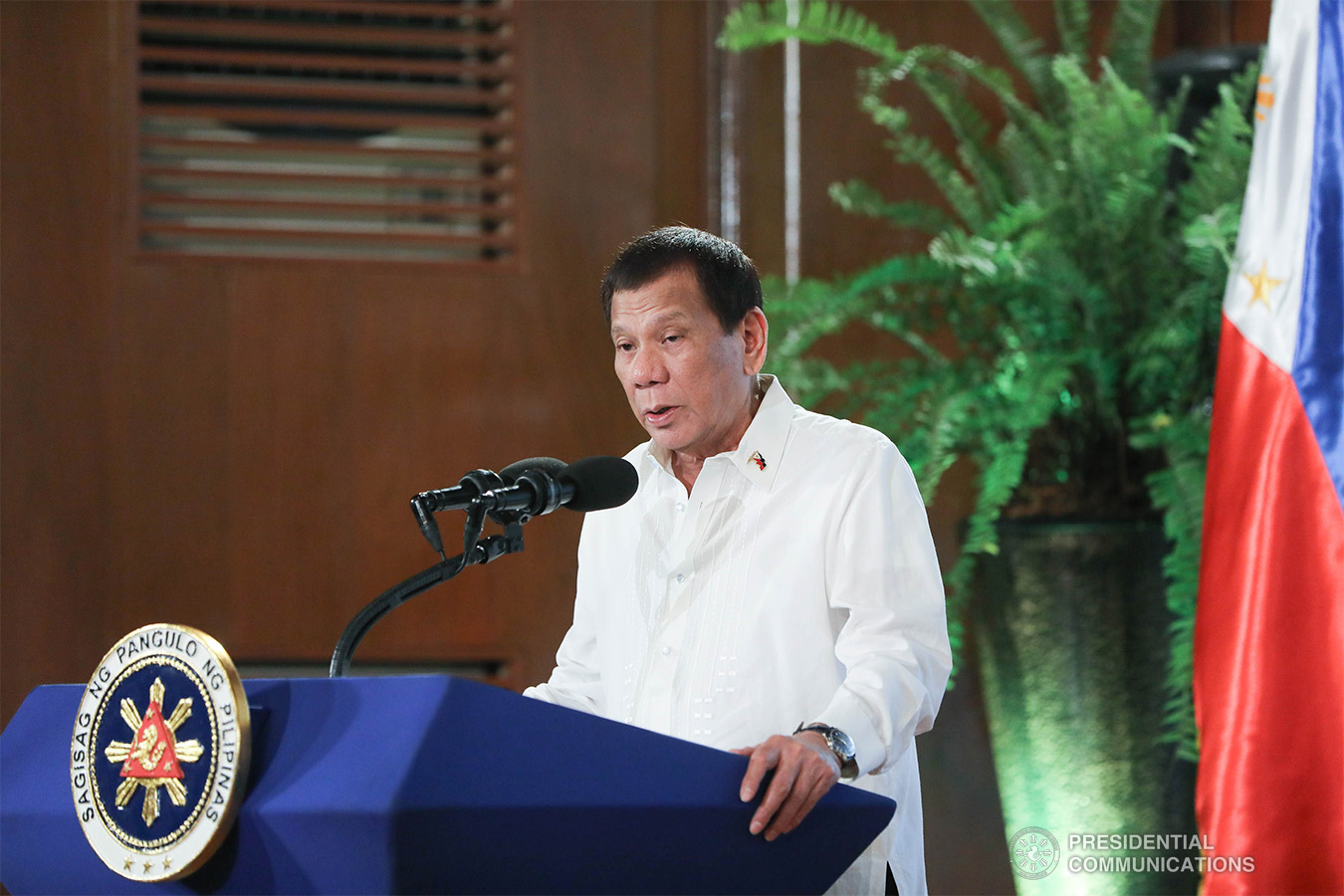News
Affordable liver transplant soon in PH

FILE: President Rodrigo Roa Duterte at the Malacañan Palace on January 7, 2020. ALFRED FRIAS/PRESIDENTIAL PHOTO
MANILA – Filipinos with liver failure find a glimmer of hope after President Rodrigo R. Duterte vowed to capacitate the National Kidney and Transplant Institute (NKTI) so that patients need not go abroad for liver transplant.
“Subukan natin dito. Ako, naniniwala ako. Hindi ako nambabarat—may pera at tutulong ako (I believe we can do it here. There is money and I will help),” Duterte told the parents of a child with biliary atresia on Jan. 15.
He encouraged Ronald Naval and Kendy Aguilo to have their daughter, Sophie, undergo liver transplant in the country instead of in India, which the couple prefers due to the lower cost of the operation there.
A liver transplant in the Philippines is at least three times more expensive than the P1.2 million needed in India but the cost is expected to go down once NKTI has a sufficient number of specialists and equipped with the necessary equipment and facilities.
Based on recommendations of Senator Christopher Lawrence “Bong” Go, Duterte said it is better to have the medical procedure in the Philippines so that the patient can receive better pre-operative and post-operative care and has easier access to financial assistance from relevant government agencies.
Go cited the unfortunate case of Eren Arabella Crisologo, daughter of a Philippine Army soldier from Butuan City, who died from biliary atresia.
Duterte and Go first met baby Eren when they visited the wounded-in-action soldiers in a hospital in Cagayan de Oro City in March 2019. They sent the 11-month-old baby and her parents to India in June 2019, but the operation did not succeed.
“Sa kasamaang palad, nagkaroon ng komplikasyon si baby Eren kaya hindi na-survive ang operasyon (Unfortunately, she did not make it due to complications),” Go said during a meeting with key government officials and private health care professionals in August 2019 to discuss the rising cases of biliary atresia in the country and the high cost of liver transplant.
Short-term and long-term solutions
During the meeting, Go, upon consultation with health officials and practitioners, came up with short-term and long-term solutions to the problem that were presented to the President.
The short-term solution is to form a consortium composed of the Office of the President (OP), Department of Health (DOH), Philippine Children’s Medical Center (PCMC), and The Medical City (TMC), a private hospital.
The long-term solution involves acquiring equipment, developing the facilities of NKTI, and sending its specialist staff to Kaohsiung Chang-Gung Memorial Hospital (KCGMH) in Taiwan for training.
Under the consortium, the estimated budget for each beneficiary is PHP3.6 million, PHP2.9 million which will be spent on the operation at TMC while the rest will be for pre-operation and post-operation care at the PCMC.
Considered to be the most feasible immediate solution to the problem, the consortium takes advantage of an existing partnership between the PCMC and TMC and will last until NKTI is capable of solely performing pediatric and adult living donor liver transplantation.
The government will spend P58.1 million for the equipment that NKTI needs and P1.3 million for a batch of twelve specialists who will be trained for one to two months in Taiwan. Each specialist will have to serve at NKTI for two years in exchange for the training.
The long-term solution, which is expected to raise the standards of health care and uplift the morale of Filipino medical practitioners, also takes advantage of an established relationship between NKTI and KCGMH.
“Nais natin na ang mga pasyente ay magtiwala po sa kakayahan ng ating mga doktor. Gusto natin sabihin sa kanila na hindi na nila kailangan pumunta ng ibang bansa para sa liver transplant. Magtiwala sila sa ating local doctors (We want patients to have confidence in our doctors and tell them that they do not need to go abroad for liver transplant),” Go said.
“’Yun po ang objective natin dito, as soon as possible sana. Sana ay maging at par tayo sa ibang bansa (That is our objective as soon as possible. And to be at par with other countries),” he added.
Based on Go’s suggestions, the PCMC will work out a possible assistance arrangement with the DOH through the agency’s Medical Assistance for Indigent Patients (MAIP) Program.
The Presidential Management Staff (PMS) will also map out other sources of assistance and arrange a meeting with the Department of Social Welfare and Development (DSWD), Philippine Charity Sweepstakes Office (PCSO), Philippine Health Insurance Corporation (PhilHealth), Philippine Amusement and Gaming Corporation (PAGCOR) and private partners.
Go added that the patients can avail of the services of Malasakit Centers — one-stop shops that streamline medical and financial assistance from PhilHealth, DOH, DSWD, and PCSO.





















